30.10.2024 | People
Fastiv is a city in central Ukraine, located 75 km from the capital, Kyiv, with a population of approximately 44,000 inhabitants, including over 3,000 internally displaced persons (IDPs). After the Russian invasion in February 2022, the communal waste management machinery used in Fastiv for many years was relocated to other war-affected cities in the Kyiv region. The equipment was old, worn out, and inefficient, produced high emissions, and required constant repairs. Without it, however, the city was unable to fully provide basic services, including waste collection and disposal, to meet the needs of local residents and internally displaced persons who arrived in the city in spring of 2022.
Читати історію українською мовою
- With grant funding of EUR 960,000, a waste management modernisation project has been implemented in the city of Fastiv, in the Kyiv region.
- New equipment and updated waste management processes have already improved the quality of services and working conditions for both city inhabitants and employees, while also fostering sustainability awareness among the people of Fastiv.
- The project has been implemented under the EU-financed and Nefco-managed NIP Ukraine Water Modernisation programme.
“The machinery that our enterprise employed before the Russian invasion was heavily worn out and from February 2022 the equipment was partially directed for the arrangement of fortifications and then relocated to nearby affected communities to support their waste management processes, explains Yurii Avramenko, Acting Director of the “Fastiv Housing Maintenance Office” Municipal Enterprise, “These factors caused disruptions in waste collection schedules, leading to illegal dumping near container sites and dissatisfaction among residents. Additionally, there was a shortage of employees. Therefore, replacing the equipment and reforming the waste management system became urgent.”
To address Fastiv’s needs for more efficient waste management processes, grant funds from the NIP Ukraine Water Modernisation Programme, funded by the European Union and managed by Nefco, were repurposed from a planned wastewater modernisation project for a waste management project in Fastiv. With a budget of EUR 960,000, the city received 600 new waste containers, 4 waste trucks, and one bulldozer.
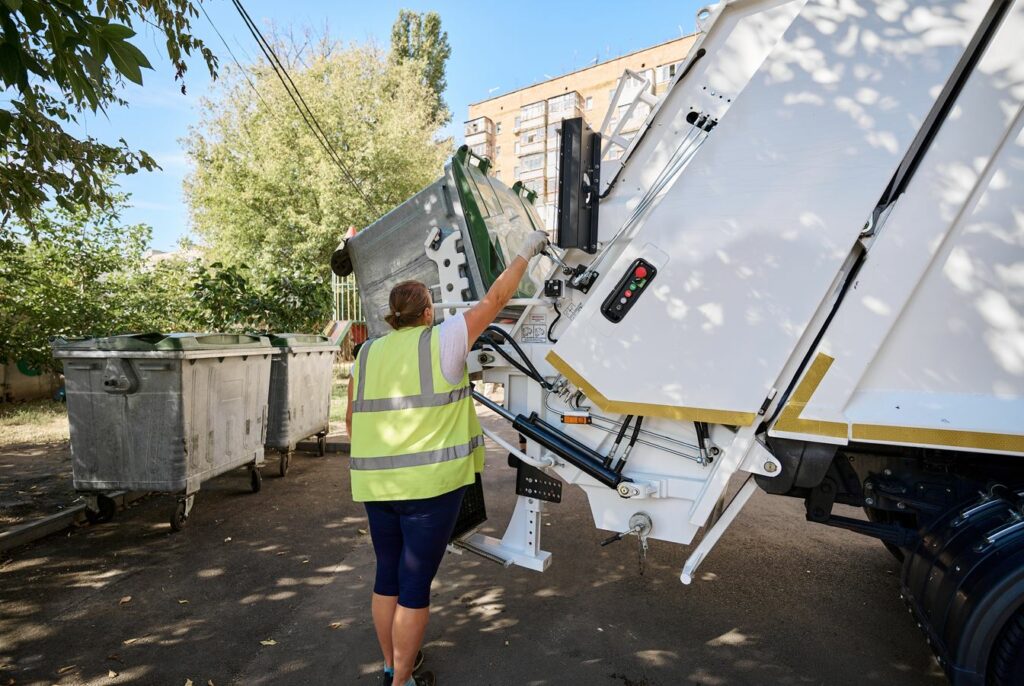
Bringing efficient waste management to the streets of Fastiv
The new equipment has already improved the quality of waste management services and working conditions for city employees while also contributing to fuel savings, which, in turn, reduces greenhouse gas emissions.
“Positive results became visible within the first weeks after the equipment was put into use,” elaborates Yuliia Komendant, Acting Director of the Fastiv Management Company, a municipal enterprise of the Fastiv City Council. “First of all, the sites around the containers are now clean, as the containers are constantly closed with lids. Secondly, thanks to the new equipment, there are no disruptions in the waste disposal schedules. But the areas with single-family houses have undergone the biggest changes. Today, more than 300 European-quality waste containers have been installed in the city’s neighbourhoods, and a regular waste collection service is now available for residents of private households.”
Sites around the containers are now clean and there are no disruptions
Yuliia Komendant, Acting Director of the Fastiv Management Company
in the waste disposal schedules
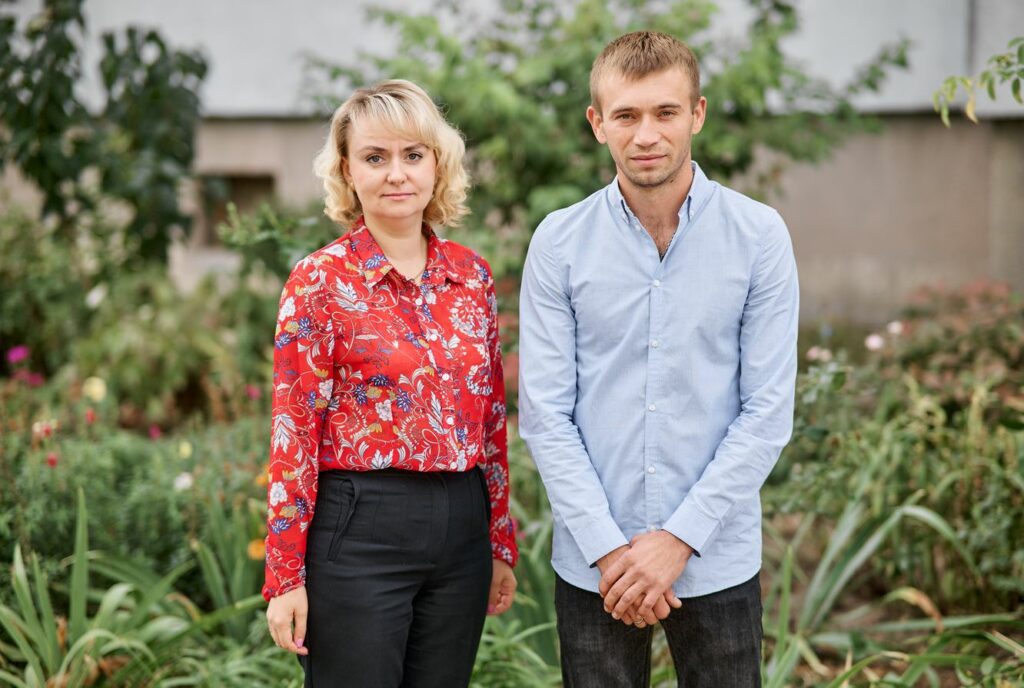
Cleaner neighbourhoods, happier residents
Fastiv residents have already felt improvements thanks to the implemented project.
“Waste management in our city has improved a lot compared to its previous state,” shares Liliia Kholodnitska, Head of the Zarichchia neighbourhood committee. “Not long ago, waste was taken out in waste bags once a month, which was inconvenient. The new waste trucks and containers in our city have greatly optimised the collection of household waste from residents. Waste is now collected eight times a month, and the new containers are easy to use.”
Olena Zievako, Head of the Kaznivka neighbourhood committee, agrees, emphasising the impact of the project on residents’ willingness to dispose of waste properly. “Before the project, household waste was collected without containers. The residents handled this arrangement poorly, leading to waste being dumped on the riverbank and in the forest. Since the project’s implementation, this trend has been decreasing. There is now growing interest among residents in increasing the number of containers in our neighbourhood.”
Before the project, household waste was collected without containers. The residents handled this arrangement poorly, leading to waste being dumped on the riverbank and in the forest
Olena Zievako, Head of the Kaznivka neighbourhood committe
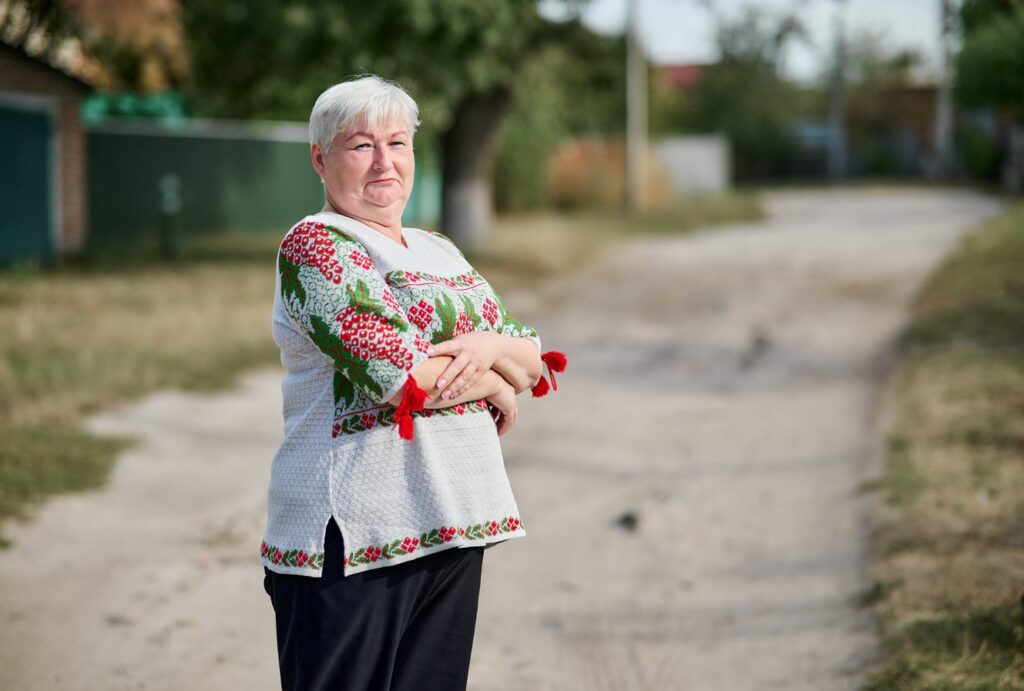
The municipal employees involved in waste collection and transportation also view the completed project as a positive development for the city.
“I have been working as a waste truck driver for over 15 years,” comments Oleh. “Before switching to the new equipment, I operated a waste truck manufactured in 1984 without a crew, which required me to leave and enter the cabin more than 40 times a day. With the new equipment, I am accompanied by two loaders who bring the containers to the waste truck and load them into the hopper. This allows me to focus solely on my driving, and the comfort is incomparable.”
“On the old waste truck, I was able to collect 80–90 containers during the working day, which is approximately 65–70 m3 of waste,” continues Oleh. “Today, the same 90 containers can be picked up daily, but thanks to the new containers, the total volume of waste collected is now almost 100 m3. As a result, the municipality can adjust the waste collection schedule, and the amount of waste dumped beside and near the container sites has decreased significantly.”
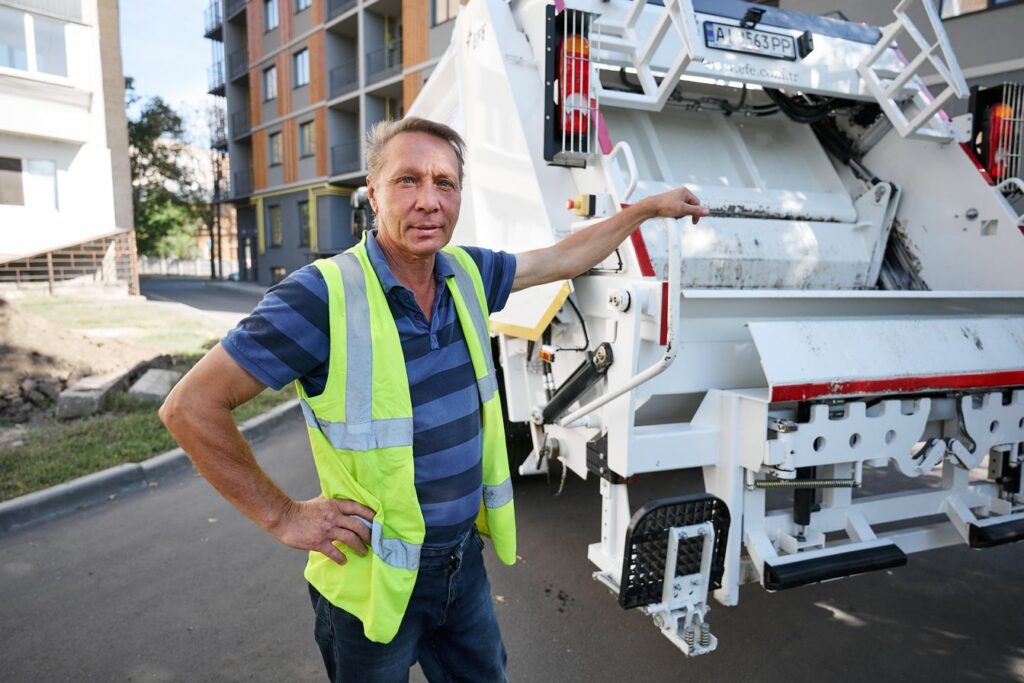
Bulldozer driver Volodymyr points out the efficiency and convenience of the new vehicle he operates.
“Working on a new bulldozer is significantly different from working on Soviet equipment,” explains Volodymyr. “Firstly, the driver’s cabin is modern and equipped with noise and vibration protection, air conditioning, and a comfortable seat. Such comfort was not available in Soviet models, which caused constant strain on my back and joints. Secondly, the new equipment is much more precise and controllable, thanks to modern hydraulic systems and process automation. Previously, everything was done manually, making the work more physically demanding. And, of course, the productivity of the new bulldozer is higher. While the old bulldozer had to stop frequently due to breakdowns, the new one is faster, more reliable, and easier to maintain, all while requiring less fuel. New technology has made our work as drivers faster, easier, more environmentally friendly, and more pleasant.”
The new bulldozer is faster, more reliable, and easier to maintain,
Bulldozer driver Volodymyr
all while requiring less fuel
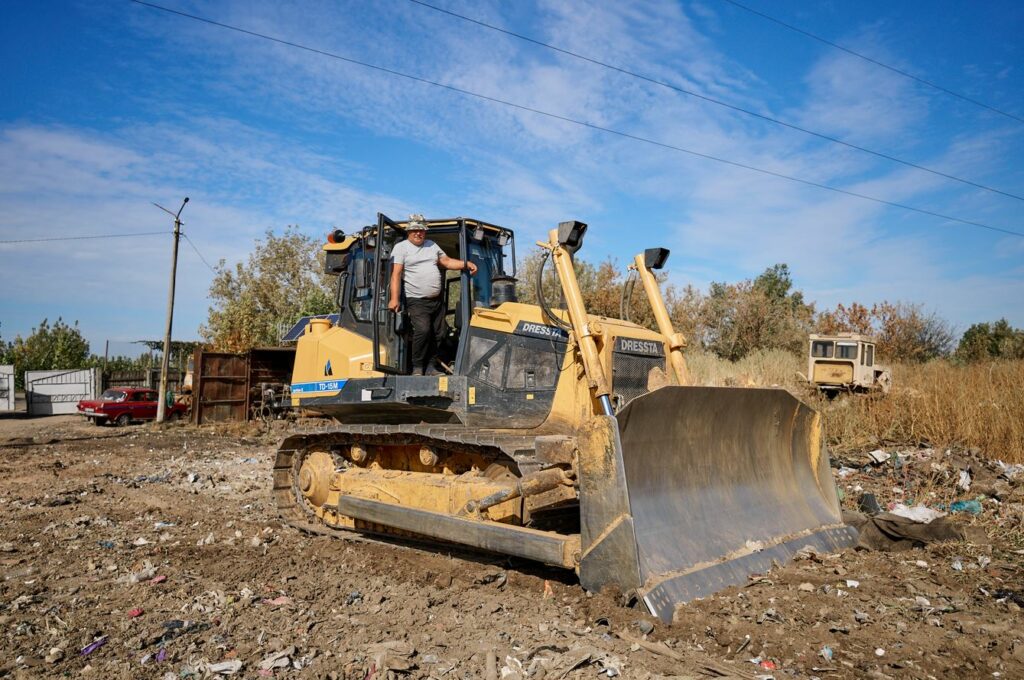
Inspiring the youth to be more environmentally conscious
The objectives of the Fastiv project went beyond modernising the city’s waste management processes. It became part of broader efforts to raise awareness about environmental issues, such as recycling and the sorting and disposal of solid household waste among residents. Many schools and day-care centres, for instance, are now equipped with three-compartment recycling containers to involve children in the process. The project has likewise inspired the city to continue implementing modern waste management approaches, particularly at-source separation.
To foster awareness, the city organised a competition for young people to create a logo that would serve as the environmental symbol of Fastiv. Sixteen-year-old Valeriia was chosen as the winner. With her drawing, she wanted to convey “the beginning of a much cleaner and nicer city of Fastiv.”
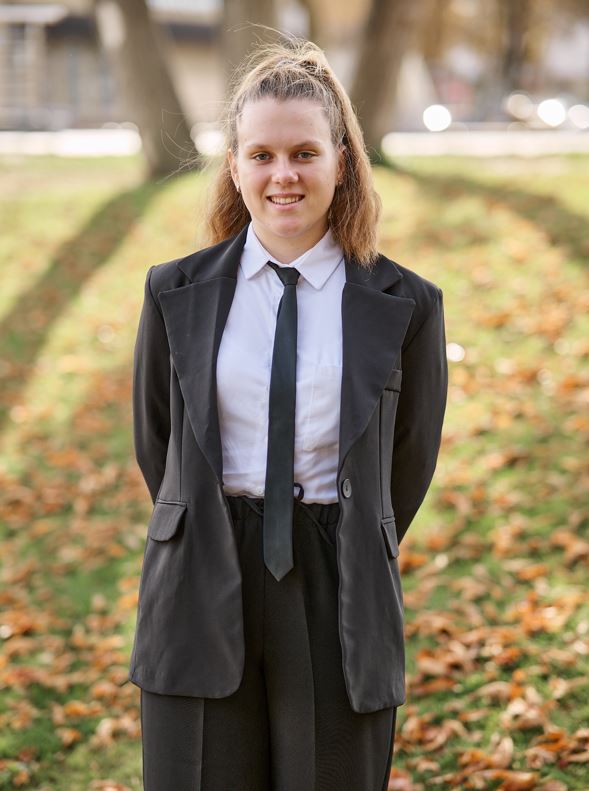
Each individual in Fastiv must realise that they need to contribute their part to support better recycling
Valeriia, winner of the creative competition
“When I was creating my proposal for the competition, I wanted to make it look aesthetically pleasing to emphasise that Fastiv is a city of beauty, a city of pleasure,” shares Valeriia. “It is wonderful that Fastiv has implemented this waste management project. New waste containers are clearly visible throughout the city. However, each individual in Fastiv must realise that they need to contribute their part to support better recycling. If everyone globally understands this, the earth would be a much cleaner place to live on.”
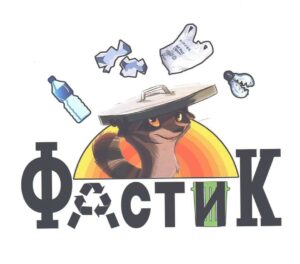
“This project has prompted drastic changes in our community, particularly regarding people’s attitudes towards the environment they are surrounded by,” says Mykhailo Netiazhuk, Mayor of Fastiv. “Thanks to this project, we have completely reorganised the solid waste management system in our city. We are also grateful to the youth of Fastiv who actively participated in the creative competition. In addition, waste recycling and its importance are now included in our schools’ curriculum. This project, implemented with grant funding from the European Union in close cooperation with Nefco, is extremely valuable for our community.”
“After the outbreak of the full-scale Russian war of aggression, the European Union repurposed several on-going projects to support Ukraine in addressing urgent needs,” says Jocelin Cornet, Head of the Reconstruction, Energy, Infrastructure and Environment Section of the EU Delegation to Ukraine. “We are proud to support Fastiv through these challenging times. Our immediate objective is to address urgent needs while setting the stage for long-term, sustainable progress. In the EU, we prioritise waste prevention and see landfills as the last resort. We hope these advancements will inspire further positive changes in waste management practices in Fastiv and beyond.”
“The modernisation of Fastiv’s waste management processes is the first Nefco-financed project aimed at improving waste management in Ukraine,” says Anna Minakova, Technical Consultant at Nefco. “I am confident that this project will become a stepping stone for a cleaner, more sustainable future for Fastiv and also serve as a model for replication in other similarly sized cities across Ukraine.”
For further information, please contact:
Ronny Nilsson, Senior Adviser, Nefco
ronny.nilsson@nefco.int, +358 10 618 06 42
Anna Minakova, Technical Consultant, Nefco
a.minakova@nefco.org.ua, +380 50 331 5107